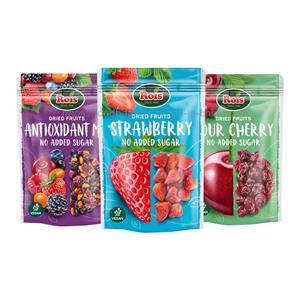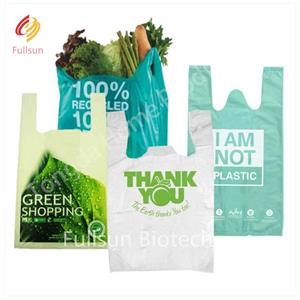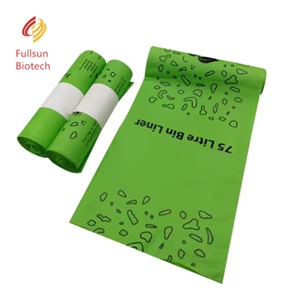New biodegradable shopping bags materials can replace microplastics for food fortification and cleaning products

Microplastic pollution is a growing global environmental crisis. biodegradable shopping bags Recent estimates suggest that 500,000 to 8 million tons of plastic are dumped into the ocean each year, with a 4% growth rate, of which 49,000 to 53,000 tons are microplastics. Defined as synthetic solid particles ranging in size from 1 micron to 5 millimeters, microplastics are difficult to degrade and are ubiquitous throughout the food chain, posing an environmental and health risk. Studies have shown that patients with microplastics in carotid artery plaques face a higher risk of heart attack, stroke, or death. Microplastics can also carry toxic chemicals into the bloodstream, causing further health problems. As a result, the United States and some other regions have banned the use of microplastics in flushable consumer products, and the European Commission has proposed stricter regulations.
Fullsun Biodegradable trash bags
Mitigation strategies include micron-level filtration in wastewater treatment, which has limited success due to infrastructure challenges, and catalytic conversion of plastic waste into other products. However, replacing non-degradable microplastics with degradable alternatives offers a potentially more sustainable approach. In this study, we evaluated the potential of a biodegradable polymer microparticle (MP) platform as an alternative to non-degradable microplastics in two applications: (1) microbead additives in personal care products and (2) encapsulation materials for oral delivery of micronutrients in food fortification. Both applications rely on micrometer-sized polymer particles, which are mostly made of non-degradable materials. The polymer microparticles were used as microbeads in personal care products and as stabilizers for controlled nutrient release in food fortification. These applications provide proof-of-concept for the versatile MP platform as an alternative to microplastics.
Previous studies have explored a variety of biodegradable polymers as alternatives to non-degradable plastics. However, limited results have been achieved due to the diverse material requirements of different applications. To address these needs, we designed a series of natural product-inspired poly(β-amino ester) (PAE) polymers that are degradable by hydrolysis and have a rich and diverse monomer profile. PAE polymers can be synthesized in a step-economical process, providing a feasible basis for large-scale manufacturing. We prepared poly(β-amino ester) polymer microparticles with controlled physical properties and demonstrated their successful application as microplastic replacements in personal care products and food fortification. The microparticles degraded into small molecule sugars and amino acid derivatives, further highlighting their potential environmental benefits.
Conclusions
This PAE MP platform demonstrated a functional alternative to non-degradable microplastics used in cleaning products and food fortification. In cleaning products, PAE MPs effectively improved the cleaning efficiency of a representative rinseable product and effectively removed potentially toxic ingredients as an alternative to traditional non-degradable microbeads. In food fortification, PAE MPs provided reliable protection for a variety of essential vitamins and minerals from prolonged cooking and storage conditions, while also enabling rapid nutrient release in a simulated human digestive system. Overall, these poly(β-amino ester) polymer microparticles provide a potential platform to replace the use of microplastics in a wide range of applications around the world.
Biodegradable Shrink Film Wrap Film




